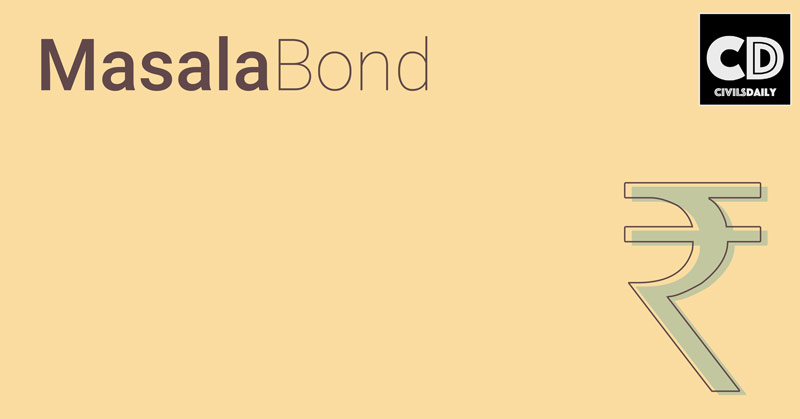What’s New In The Masala Bonds?
During his visit to the UK last week, Prime Minister Narendra Modi spoke about the Indian Railways issuing bonds and listing them on the London Stock Exchange.
Let’s explore the Bonds as a financial instrument and then dive deep into Masala Bonds.
What are Bonds?
Bonds are debt instruments which allow the companies or govt. to raise funds only by incurring debt and lender is guaranteed of a fixed repayment (Principle and Interest).
What are instrument available with Company to raise funds?
1. Issue Bonds – Companies will have to pay the fixed amount when the bond matures.
2. Issue Shares – Companies would like to raise money, but don’t want is as a debt, so company will issue shares.
Can you imagine who (Company/Investor) will prefer what (Debt/Shares)?
Companies will prefer to raise money through equities i.e. issuing shares because they will part a share of the company to the investors, while the investors will prefer to purchase bonds because bonds are more secured.
Shares may give higher returns in the long run. So, it is risk-return trade-off.
How the bonds are more secure than shares?
In case of liquidation of the company, the bond holders are the one who get their claim before the share holders.
Now, let’s get into main discussion on Masala Bonds
What’s new in the Masala Bonds?
Basically, overseas rupee bonds are known as Masala bonds.
- Indian firms have earlier raised money abroad through bonds and other forms of borrowings, but always in foreign currency.
- However, the first overseas rupee bonds were issued in 2013 by the International Finance Corporation, the World Bank’s private sector investment arm.
- To raise funds for capital expenditure, the Indian Railway Finance Corporation will be issuing bonds denominated in rupees.
What are the risk associated Indian companies with foreign currency overseas bond?
- An Indian company issuing a overseas bond(i.e. in other currencies specially dollar) runs into a risk on account of currency fluctuation.
- If rupee weakens during the period of bond, then it add significantly to costs at the time of repayment, normally at the end of 5 years.
How Masala Bonds will benefit Indian companies?
- If the issuer, issues bonds in rupees, then he gets rid of this risk (currency fluctuation) which passes on to the investor.
- This bond brings a new and diversified set of investors for Indian companies, and more liquidity in foreign exchanges, apart from bank funding and the corporate bond market in India.
Does Masala bond offer something for foreign investors?
The investor who purchases a bond issued by an Indian entity is betting on India, in a hope that currency and inflation would be stable enough to ensure good returns after hedging for foreign exchange risks.
With India’s GDP or national income rising, and projected to grow at a reasonably fast clip over the next few years, many overseas investors would like to buy into such bonds to join the party and to earn higher returns compared to the US and Europe where interest rates are still low.
How does Govt. and RBI view Masala Bonds?
The local currency bond markets can contribute to financial stability by reducing currency mismatches and extending the duration of debt.
It will also be a sign of early acceptance of the Indian currency in trading and settlement overseas, showing the confidence of investors and can lead to internationalization of the currency over the medium- and long term.
Foreign investors prefer to hedge their risks overseas because there are limited products in the Indian market, especially for longer periods.
The other worry, if the overseas rupee bond market takes off, will be about the growth of the Indian corporate bond market and Indian banks as top companies shift to another market, impacting growth here.
Was such an approach adopted by any emerging economies in past?
China’s People’s Bank of China has previously issued yuan denominated bonds to raise funds at a little over 3%.
China had issued bonds in its own currency in Hong Kong dubbed dimsum bonds and plans to issue more as part of its plan to push its currency for global trade.
- Unlike China, the Indian govt. has never borrowed abroad on its own, preferring to push its state owned firms, instead.
- RBI, unlike the Chinese central bank, cannot issue debt with no legal sanction for it.
But these have been borrowings in dollar or other currencies. The Railways bond, on the other hand, will be denominated in rupees.
Published with inputs from Pushpendra


